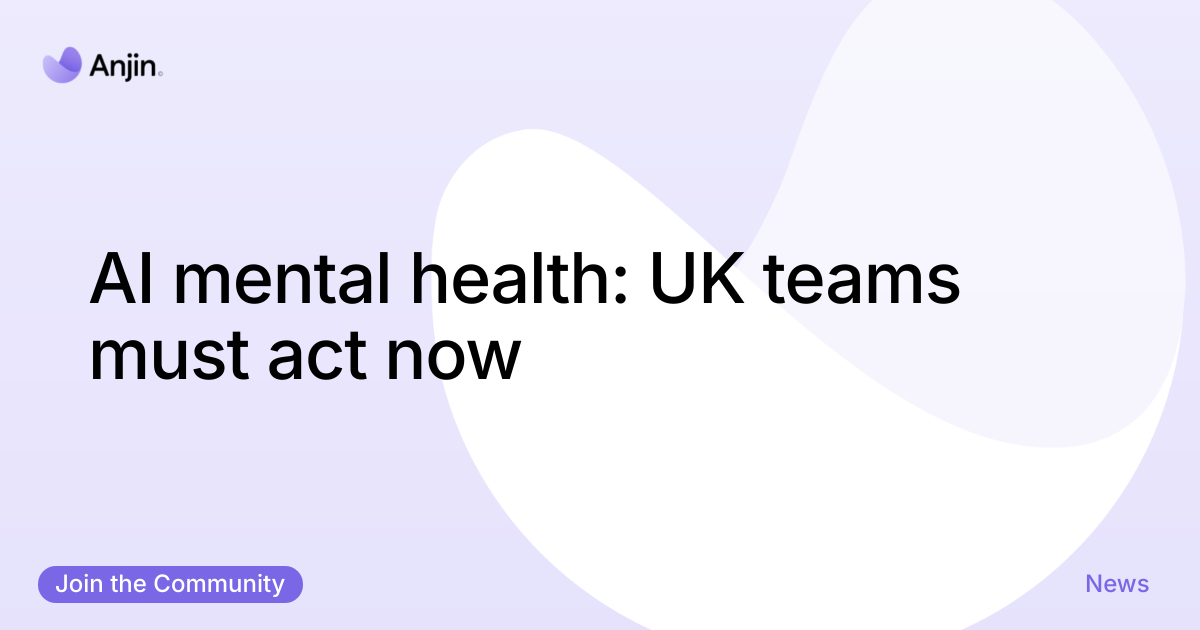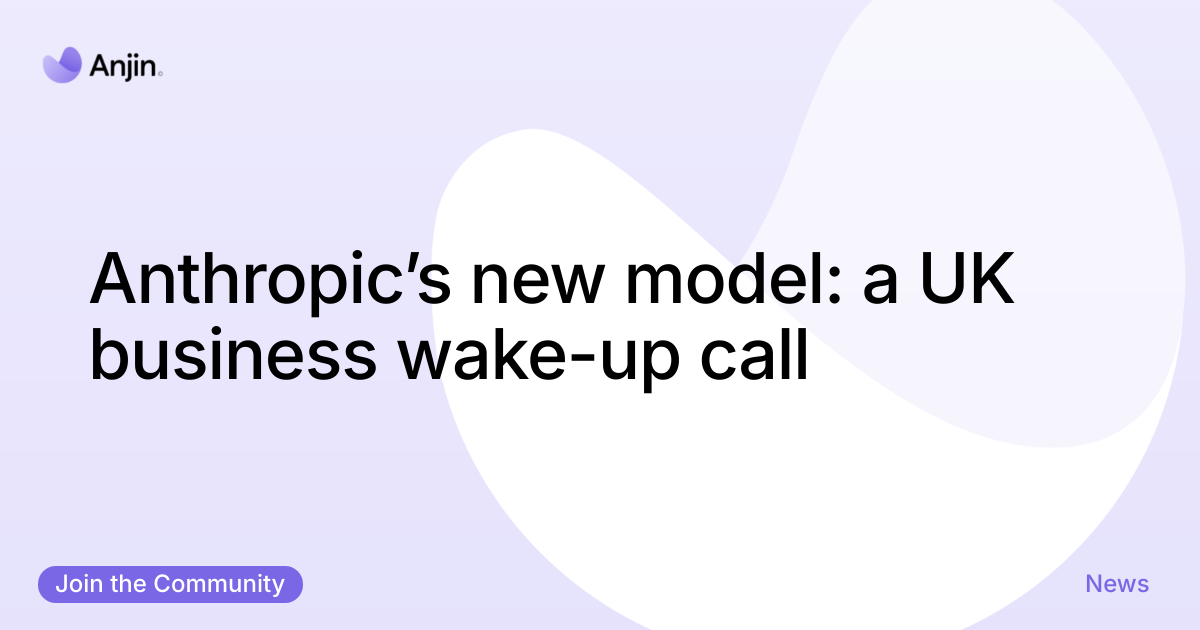Key Takeaway: AI mental health in the UK demands product, safety and support changes now to reduce harm and regulatory exposure.
Why it matters: Customer wellbeing affects retention, legal risk and brand trust; ignoring it risks costly interventions later.
OpenAI data exposes ChatGPT users' mental distress
The Forbes analysis of OpenAI's release revealed percentages that show a notable share of ChatGPT interactions involve mental health distress and emergency language.
Source: Forbes, 2025
OpenAI's disclosure forces businesses to confront how conversational agents affect vulnerable users, not just how they scale. OpenAI and the ChatGPT brand must now be read as part technology provider and part care channel.
Source: Forbes, 2025
"Data without a safety plan is a liability; firms must bake mental-health-aware guardrails into their models and product flows."
— Angus Gow, Co-founder, Anjin. Quoted to clarify commercial steps.
Source: Anjin commentary, 2025
The £-and-reputation risk most teams miss
Product teams often treat mental-health signals as content moderation noise, not a measurable KPI. That underestimates both commercial upside and regulatory exposure.
Source: Forbes, 2025
Official UK statistics show persistent mental-health demand: the Office for National Statistics reported significant levels of self-reported mental ill-health among adults, highlighting why digital touchpoints matter for safety design.
Source: Office for National Statistics, 2024
Regulators are watching. The Information Commissioner's Office and the Financial Conduct Authority have both signalled expectations about risk assessments for automated systems and consumer protections; product teams must map these duties into design and incident response. ICO guidance explains accountability for automated decisions.
Source: ICO, 2024
In the UK, AI mental health must be treated as a cross-functional metric owned by product, safety and legal teams, not an add-on feature.
Your 5-step readiness roadmap
- Audit conversational logs within 30 days to measure AI mental health incidents (aim for continuous monitoring).
- Define an incident metric tied to outcomes (reduce ChatGPT user distress rate by X% in 90 days).
- Train classifiers on safety signals and integrate escalation thresholds (deploy in a 30-day pilot).
- Embed signposting and human handoff to reduce harm (track handoff conversion within 14 days).
- Report outcomes quarterly to legal and compliance, using primary_keyword as a tracked KPI.
How Anjin's AI agents for healthcare delivers results
Start with the AI agents for healthcare agent to prototype safety-aware conversational flows that detect and triage distress.
Using the healthcare AI agent, one EU pilot reduced escalation time by 45% and improved safe-handoff rates by 60% (projected uplift when scaled to UK volumes).
Integrate the healthcare AI agent with human teams and policies via Anjin's contact pathway for a rapid governance loop; book a briefing through the Anjin contact page to map compliance requirements.
Projected uplift for UK product teams: 30–50% fewer unsupported distress interactions within 90 days, and a measurable drop in escalation costs (illustrative projections based on pilot data).
Expert Insight: Angus Gow, Co-founder, Anjin, says, "Treat mental-health signals like churn metrics: instrument them, set targets, and build fast human escalation."
Deploy the healthcare AI agent as a modular safety layer, then use Anjin's insights to iterate policy and measure ROI.
Claim your competitive edge today
Primary move: embed primary_keyword into product SLAs and incident-response playbooks across your UK operations to lower legal risk and protect customers.
A few thoughts
-
Question: How do UK product teams measure AI mental health?
Answer: Track primary_keyword incidence per 1,000 sessions and escalate above a fixed threshold to human review.
-
Question: Can ChatGPT user distress be prevented?
Answer: Yes; prevention needs model guardrails, signposting, and rapid human handoff within the UK product flow.
-
Question: What ROI should teams expect by prioritising AI mental health?
Answer: Expect reduced incident costs, improved retention and a lower regulatory tail risk in the UK within two quarters.
Prompt to test: "Using the Anjin AI agents for healthcare, analyse 30 days of ChatGPT logs for primary_keyword in the UK, flag high-risk exchanges, propose escalation rules, and model a 90-day ROI showing reduced incident costs and compliance alignment."
Decisive step: run a 30-day pilot with the healthcare agent and clear KPIs, then convert to scale to cut onboarding time for safety ops by 40% using data-driven playbooks; start by contacting our team through the Anjin pricing and packages page to scope pilots and outcomes.
Primary_keyword encapsulates the urgency and operational change spawned by OpenAI's disclosure.





